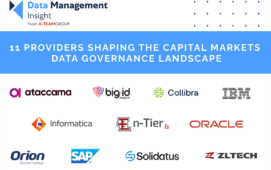There has been a widespread failure of the Gaussian copula valuation model in the credit derivatives market, according to a recent survey by analytics and risk management solution provider Quantifi. Rohan Douglas, CEO of the vendor, explains that the failure of the standard one factor models that are widely used to price synthetic collateralised debt obligations (CDOs) is one of the most serious challenges being faced by market participants today.
“These models simply could not cope with the wide spreads on super senior tranches relative to other market prices. This posed a serious challenge as conventional models started to produce negative deltas and in many cases failed to calibrate, leaving market participants without accurate pricing and risk analysis when they needed it the most,” explains Douglas.
Quantifi’s survey, which included respondents from banks, asset managers and hedge funds, highlighted that 75% of respondents had experienced difficulties with simple Gaussian copula models. Widening spreads and market volatility are putting heavy strains on financial institutions’ existing models, says Douglas. Because standard Gaussian models cannot cope with current market conditions, firms are increasingly interested in correlated recovery models, he continues.
“Now, more than ever, we encourage firms to carefully examine the merit of independent models and alternative modelling techniques, so that they can better hedge and manage their risk exposure,” Douglas contends.
In addition, because of the current market turmoil, the majority of survey respondents indicated that independent models were very important if not crucial to their businesses. “One of the interesting findings was the importance that market participants are placing on independent pricing models,” adds Douglas. “On a scale of one to five – with five being most crucial – 80% proclaimed the use of independent models to be a four or a five. This is evidence of the growing importance independent models play in pricing derivative instruments.”
The survey was conducted at Quantifi’s seminar, titled CDO Modelling – Trends and Latest Developments and held on 19 November in London. It was aimed at informing Quantifi clients and other credit derivatives industry participants of the most recent trends in modelling CDOs, including an overview of the vendor’s new correlated recovery models, which it introduced in September. The correlated recovery model allows calibration to a wider range of tranche prices than the traditional one factor Gaussian copula model, claims the vendor.
Douglas reckons recent market events could result in beneficial outcomes in the future: “The market dislocation, extreme volatility and uncertainty in the credit markets as a whole have created significant pressures. A positive outcome is that processes such as pricing, valuation and risk analysis are revisited which often leads to the adoption of improved methodologies.”
Although derivatives have garnered themselves a bad name, Douglas believes that bargain hunting is a reason institutions will begin to invest in the credit derivatives space again. “Many firms with these investments on their books will find themselves willing to accept very low valuations in order to get them off their books. Those buyers comfortable with holding and assessing the risks associated with these trades will find price points that are simply too good to pass up as this process unfolds,” he elaborates.
“Beyond that, there are fundamentally sound reasons for investing in credit default swaps (CDS) directly as portfolio hedges. This will also be true for the CDS indices, which provide a market level view on the relative cost of credit risk. Whether CDO tranches will make a comeback remains to be decided, but even in that instance, CDO tranches can be attractive for getting access to yield improvements over traditional investments,” he continues.
The main challenges for institutions participating in credit derivatives will be tackling issues related to transparency, increased scrutiny and regulation, according to Douglas. However, the main challenge facing the valuations vendor community appears to be increased competition, as more entrants step into the business.
Despite the new contenders, Douglas is not fearful of the competition: “There are relatively few firms like Quantifi that specialise in the credit derivatives pricing and modelling space. As always in sophisticated niche markets, there are considerable barriers to entry in gaining a foothold, particularly when existing specialist firms have a strong presence and level of market expertise. Over the next five years, we may see increasing attention toward specialist firms rather than large vendors as domain expertise becomes increasingly important for financial institutions.”
Subscribe to our newsletter




